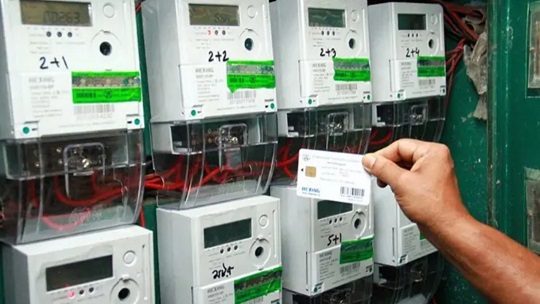Nigeria’s industrialisation quest has largely failed at the feet of poor power supply over the decades. For a country with a population of over 200 million, the electricity sector boasts of just about 13,000 megawatts of installed generating capacity but only about 4,000 megawatts are distributed daily due to largely obsolete transmission and distribution facilities. It is no surprise, then that there are frequent power outages, load shedding and occasional grid collapses which have had a negative impact on households and businesses across the country.
It is probably in recognition of the critical nature and strategic importance of electricity to the nation that barely 10 days into his administration, President Bola Ahmed Tinubu assented to the Electricity Act 2023.The Act will replace the Electricity and Power Sector Reform Act of 2005.
By the provisions of the new law, it will hopefully, provide a framework to guide the post-privatisation phase of the Nigerian Electricity Supply Industry (NESI) and encourage private sector investments. It also removes the monopoly of Nigeria’s electricity generation, transmission, and distribution at the national level and empowers states, companies and individuals to generate, transmit and distribute electricity. Unlike in the past, this new Act allows states to issue licenses to private investors who can operate mini-grids and power plants within the state. However, the Act prohibits interstate and transnational electricity distribution.
Under the Electricity Act 2023, the Nigerian Electricity Regulatory Commission (NERC) will be able to regulate the electricity sector within Nigeria without prejudice to the states’ powers to make laws and create electricity markets within those states, and to regulate those markets.
The Act also stipulates how NERC can transit regulatory responsibilities from itself to state regulators when they are established. However, NERC will continue to regulate electricity business exclusively carried out in those state pending when they pass their electricity market laws. At the moment, only Lagos, Edo, and Kaduna States, already have electricity market laws and can start regulating their market.
Another feature of the new electricity law is that any Nigerian can construct, own or operate a facility for generating electricity not exceeding one megawatt (1 MW) in aggregate at a site or an undertaking for distribution of electricity with a capacity not exceeding 100 kilowatts (KW) in aggregate at a site, or such other capacity as NERC may determine from time to time, without a license.
As a newspaper we commend the new law signed by the president, for it liberalises power sector in the country, a longstanding call by stakeholders and experts in the sector who had contended that electricity should be removed from the Exclusive List if Nigeria wanted to see growth in the sector. So, this new law would, hopefully, attract more private investors into the electricity sector, leading to increased competition and efficiency in the industry. State-owned electricity generation has numerous benefits, including increased power generation and distribution, more sustainable energy sources, increased energy security, and potentially lower costs for consumers.
More state government and private sector participation on the power sector will also help to address the poor state of the electricity infrastructure most of which are outdated and in need of repair or replacement, resulting in energy losses in transmission and distribution.
With more state and private investment, the issues with billing and revenue collection in the Nigerian electricity sector will also be better addressed. It will be more difficult for electricity theft to thrive as there will be tighter control by vigilant investors, and this will ensure higher return on investment.
Often in Nigeria, the challenge is not in the composition of laws and policy documents; the challenge has always been with implementation. We urge that this law be implemented to the letter and that the regulatory authorities will be alive to their responsibilities.
The recent increment in electricity tariff by 40 percent starting from July 1 has no doubt agitated the minds of many Nigerians. Coupled with the cost-of-living crisis engendered by rising inflation, naira devaluation and the recent termination of fuel subsidy in the country, the economic situation of most Nigerians is sure to take a turn for the worse.
Expectedly, the Nigerian Labour Congress (NLC) and other Nigerians have called for a suspension of the tariff hike for the time being bearing in mind the current realities. In as much as electricity firms need to reap from their investment, unloading this significant hike at this time might not be the wisest thing to do. A reduced increment is advisable.
(leadership.ng)
 Newsfront Online …Telling the Public as it is
Newsfront Online …Telling the Public as it is




